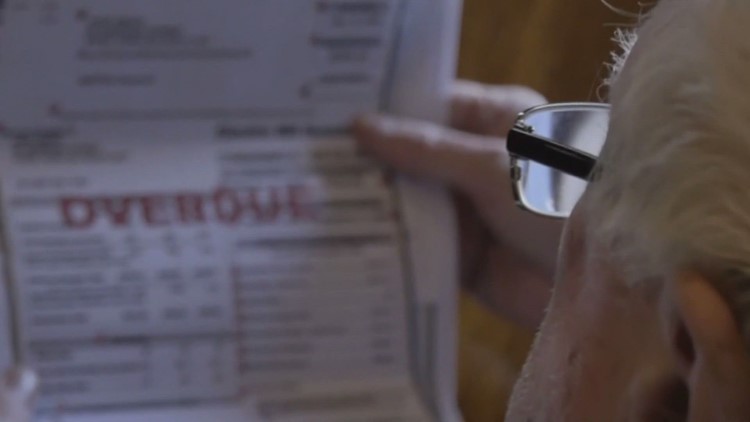
The Pheu Thai Party faces an uncertain future as the Constitutional Court is due to decide on Nov 22 whether it will accept the case based on petitions that the part is allowing itself to be controlled by former prime minister Thaksin Shinawatra, father of the incumbent premier and party leader. If found guilty, the ruling party will be dissolved. The case has been filed by Teerayut Suwankesorn, who previously pursued similar lawfare against the Move Forward Party for its policy of amending Section 112, the lese majeste law, in an alleged bid to undermine the constitutional monarchy.
The charter court ruled that the progressive party's campaign to revise this section was, in fact, an attempt to undermine and corrode the constitutional monarchy. As a result, it ordered that the MFP -- despite winning the most recent national election -- be disbanded. This time, the lawyer-cum-political activist has requested that the court make a ruling on Section 49 of the military-sponsored constitution, alleging Thaksin and Pheu Thai acted jointly to overturn the democratic system based on the King as the Head of State.

Mr Teerayut initially filed the case with the Office of the Attorney General (OAG). However, as he did not receive any response within 15 days, he turned to the charter court, which ordered the OAG to work on it. The OAG then summoned both parties, with Chousak Sirinil representing Thaksin, and sent a report to the court on Nov 8.
That is when the case began. The lawyer has accused the former prime minister of instructing the ruling party to join hands with the People's Party in seeking charter amendments, especially to Section 112. In the latest general election, Pheu Thai pledged to revise this section.
However, the party recently made a U-turn by not backing the amnesty draft law to support political activists accused of such crimes. Therefore, it remains to be seen whether the lawyer's accusation that Thaksin is undermining the monarchy will hold ground. But the main bone of contention is the accusation that Pheu Thai has been allowing itself to be dominated by Thaksin.
In his petition, Mr Teerayut cited Section 28 of the Political Parties Act, which prohibits non-party members from controlling, manipulating, or dominating a political party, either directly or behind the scenes. Breaching this law can result in a party being dissolved and its executives red-carded from politics for 10 years. It seems Section 28 is mainly linked to Thaksin's recent actions in the political arena.
What is beyond doubt is that, since he returned to Thailand and completed his jail term in February, the former PM has not contented himself with staying home and dedicating his time to looking after his grandchildren, as he previously promised. Instead, Thaksin has been seen meddling in the party's business in various areas despite the Pheu Thai Party now being led by his daughter, Prime Minister Paetongtarn Shinawatra. In fact, there were attempts to penalise Thaksin in accordance with this law before, but the Election Commission (EC) did not play along, citing lack of evidence.
This time, with Ms Paetongtarn running the party, Thaksin's manipulation looks quite obvious. Mr Teerayut also listed six events that he claims showed attempts by Thaksin and Pheu Thai to overturn Thai democracy. The first is the so-called "prison privilege" enjoyed by Thaksin, who did not spend a single day in a real jail cell after returning from his long period of self-exile overseas.
His jail term was also quickly commuted by a royal pardon. Despite this, his six-month detention at the Police General Hospital (PGH) courted controversy and was seen as undermining the royal pardon and the monarchy. Despite an abundance of evidence supporting the lawyer's case, however, it now seems likely that the only people who are at risk of facing real trouble are those who facilitated Thaksin's VVIP treatment at the PGH, rather than Thaksin himself.
The second issue is Thaksin's role in collaborating with former Cambodian PM Hun Sen on issuing a pact dubbed "MoU 44" and pushing the joint development of natural gas in areas of overlapping territorial claims in the Gulf of Thailand. Third is an accusation Thaksin was urging Pheu Thai to coordinate with the since-disbanded MFP -- seen as a precursor to the PP -- to revise Section 112 to the point of corroding the power of the royal institution. Fourth is Thaksin's dominant role in talks with leaders of coalition parties at his Chan Song La residence on Aug 14, right after the charter court removed then-PM Srettha Thavisin for appointing an ex-convict to his cabinet.
Shortly after, Pheu Thai nominated Thaksin's daughter as PM. Fifth is the accusation Thaksin played a role in dismissing the Palang Pracharath Party (PPRP) from the coalition. And sixth is the claim he had the Pheu Thai-led government use his recommendations as official policies.
In targeting Pheu Thai, it's very likely Mr Teerayut will employ the same double-pronged strategy he used when waging war against the MFP -- namely, asking for the charter court to rule if Pheu Thai violated the law before asking the EC to proceed with dissolving the party based on the court's ruling. Meanwhile, Pheu Thai has internal problems to deal with -- especially a challenge by the Bhumjaithai Party (BJP). Their alleged rift is related to land plots covering 5,083 rai in the Khao Kradong area of Buri Ram province, known as a bastion of Bhumjaithai.
The State Railway of Thailand (SRT) -- under the supervision of Transport Minister Suriya Jungrungreangkit of Pheu Thai -- is seeking to reclaim all the land. The SRT is accusing the Department of Land (DoL) -- a state agency under the Interior Ministry that is overseen by BJP leader Anutin Charnvirakul -- of issuing land titles to illegal occupants. Pheu Thai is learning it does not have absolute power anymore and that power struggles and bargaining are the order of the day.
Only time will tell if it can survive this crisis. Chairith Yonpiam is assistant news editor, Bangkok Post..














